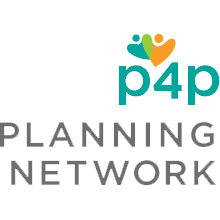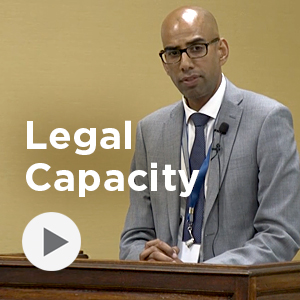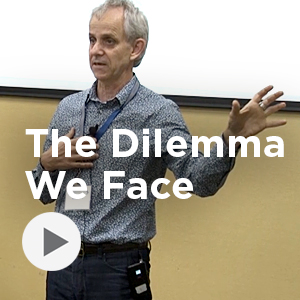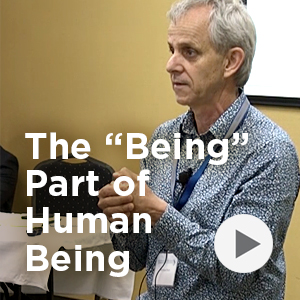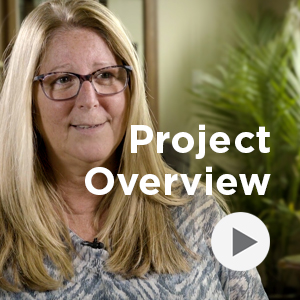
UNDERSTANDING LEGAL CAPACITY AND SUPPORTED DECISION MAKING
Many parents are surprised to learn that according to Ontario law, they have few rights to act on behalf of their adult son or daughter with a developmental disability. And, if its determined that their son or daughter lacks legal capacity, they themselves may have few rights.
Imagine being denied access to money in your own bank account; not being permitted to get your own cell phone; not being consulted about an important health decision; or being turned away when trying to open an RDSP because you have an intellectual disability.
For people, “who others” deem to lack legal capacity, these are some of the barriers they face. The issue is so much more than an occasional inconvenience - it robs people of their legal personhood. and denies them of their autonomy and dignity.
Legal Capacity
Legal Capacity
Legal capacity is not a black or white issue. The right to exercise one's legal capacity is situational and depends on the specific issue at hand. In any particular situation another person makes a judgement as to another’s capacity.
A bank teller may feel a person lacks the capacity to withdraw money; a health practitioner may not trust that a person can consent to a health decision, or a lawyer may find that a person does not meet the legislative requirements to grant Power of Attorney.
There are laws in place that require a legal test of capacity. In some situations, challenging capacity is common practice in a particular sector or may be the result of discrimination or stigma.
If someone does challenge a person’s capacity, the common response is to identify someone else to make the decision on their behalf. Put another way, to override the persons rights to have power, choice and control over their life.
Substitute Decision Making
We must emphasize that in the vast majority of situations Guardianship is not warranted.
Why Guardianship Should Be Avoided:
Supported Decision Making
Supported Decision Making is an alternative to Substitute Decision Making. Rather than removing a person’s rights and assigning them to another person, Supported Decision Making provides the resources and supports that allow a person to participate in decisions that affect their life.
We all rely on the advice of others when making important decisions in our lives. Who hasn’t consulted with family and friends when making critical decisions like buying a property, weighing health care treatment options or figuring out financial plans?
That is the essence of Supported Decision Making, allowing someone with a disability to retain their legal personhood and make legal decisions with the support of others they choose. In many cases this can be achieved informally. In others, it will require legislative change to recognize the authority of supporters.
Across Canada, a number of provinces and territories recognize the supports people with a disability may need in different ways. Interpreting the various laws and interpretations is extremely complex but several provinces have formalized Supported Decision Making.
British Columbia has adopted laws that support Supported Decision Making formally through Representation Agreements. People with intellectual and other disabilities can name the person or people they would like to support them around a variety of decisions. And they can name different people for different types of decisions. Someone may designate a parent, favourite uncle and school friend to support them around decisions such as health care. They may name one or more people to support them around decisions with personal care and again, others to provide support around health care decisions.
The Yukon government, built on BC's legislation and introduced Supported Decision Making Agreements. They provide a plain language overview in this brochure.
When people with an intellectual disability are required to make a decision, many have the capacity to express personal preferences especially when supported by those who know and care for them.
The dilemma we face is changing the law and societal misconceptions to recognize that all people have the right to control and participate in the decisions that affect their lives.
Why Does It Matter?
In thinking about why this issue is critical, consider the high rates of dementia in our society. Imagine for a moment, that you were diagnosed with dementia and over time, your legal capacity was challenged. Perhaps early in the diagnosis your symptoms may be mild and your capacity may be high. As the disease progresses and symptoms become more severe, your legal capacity will become an issue. At what point, should you lose your legal capacity to direct your life?
Imagine your medical team refusing to speak to you or even involve you in treatment decisions?
How would you feel if someone else had the right to make your decisions around the clothes you wore, the food you ate, the people you spent time with?
How about decisions on where you live and the people who are hired to support you?
The choices, preferences and power we have over our lives in many ways defines who we are as a person. As Audrey Cole, parent and advocate of Supported Decision Making states, “In a society that prides itself in equality of citizenship, the arbitrary loss of one’s legal status and identity in order to have a signature on a contract is too big of a price to pay.”
The Right to Decide Project
In 2019, Community Living Ontario launched the Right to Decide Project. Partnering with the IRIS Institute and PooranLaw, the multi-year project established six sites around Ontario to examine the practice and implications of Supported Decision Making at the community level.
The project is designed to not only identify situations in which the legal capacity of people with a disability were challenged but to demonstrate the ways in which Supported Decision Making can overcome these challenges.
It’s our hope that by demonstrating the merits of Supported Decision Making on real life issues, we can encourage the Attorney General of Ontario to initiate law reform.
For more information on the project, visit the websites for the IRIS Institute, Community Living Ontario and PooranLaw and subscribe to their social media channels for updates.
Special thanks to the Brockville and District Association for Community Involvement for sharing their video footage and for their support in developing this Action Guide.
Please send any additional thoughts or feedback on this Action Guide to info@p4p.ca

